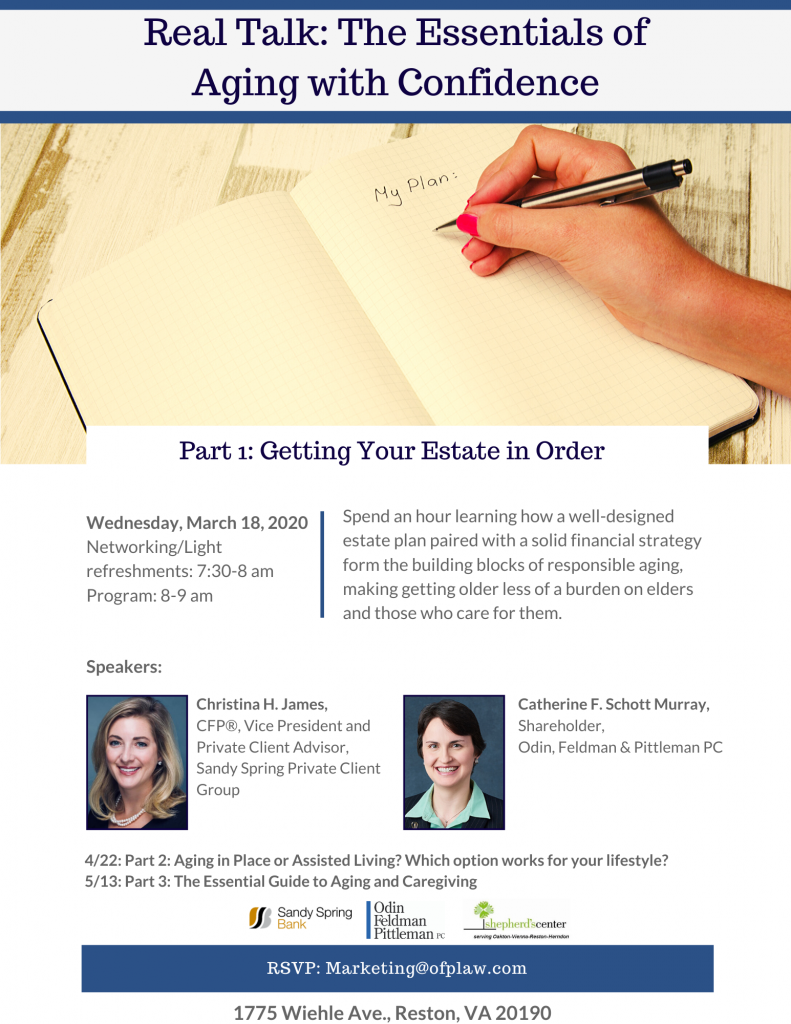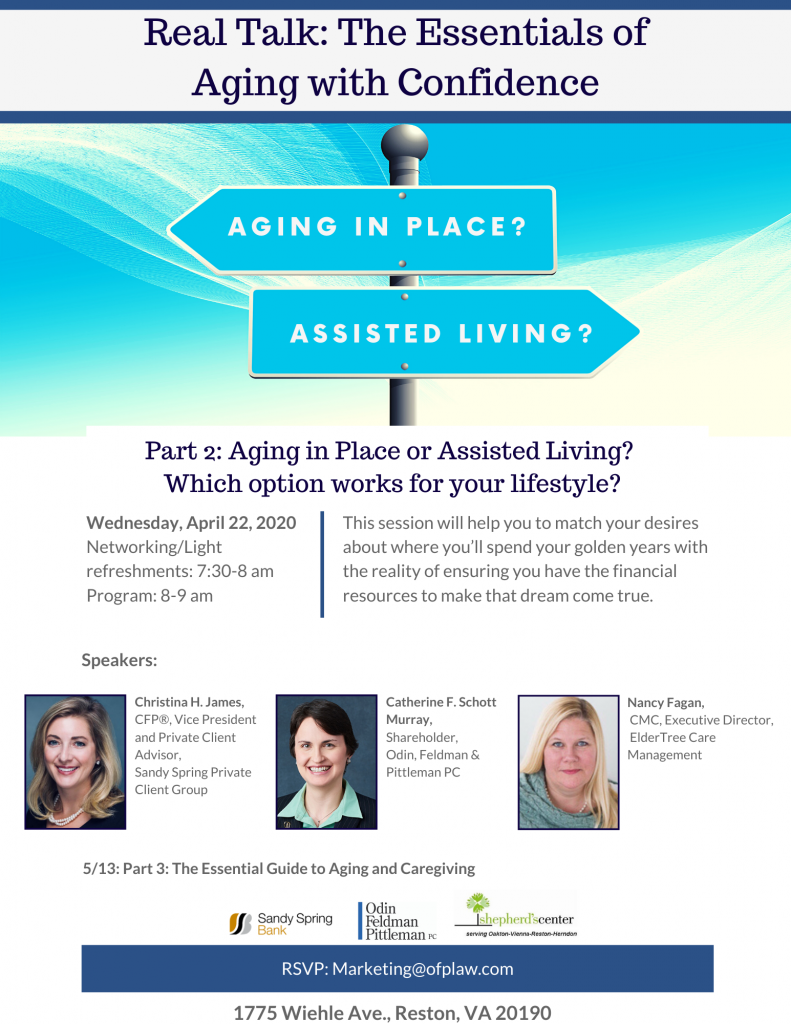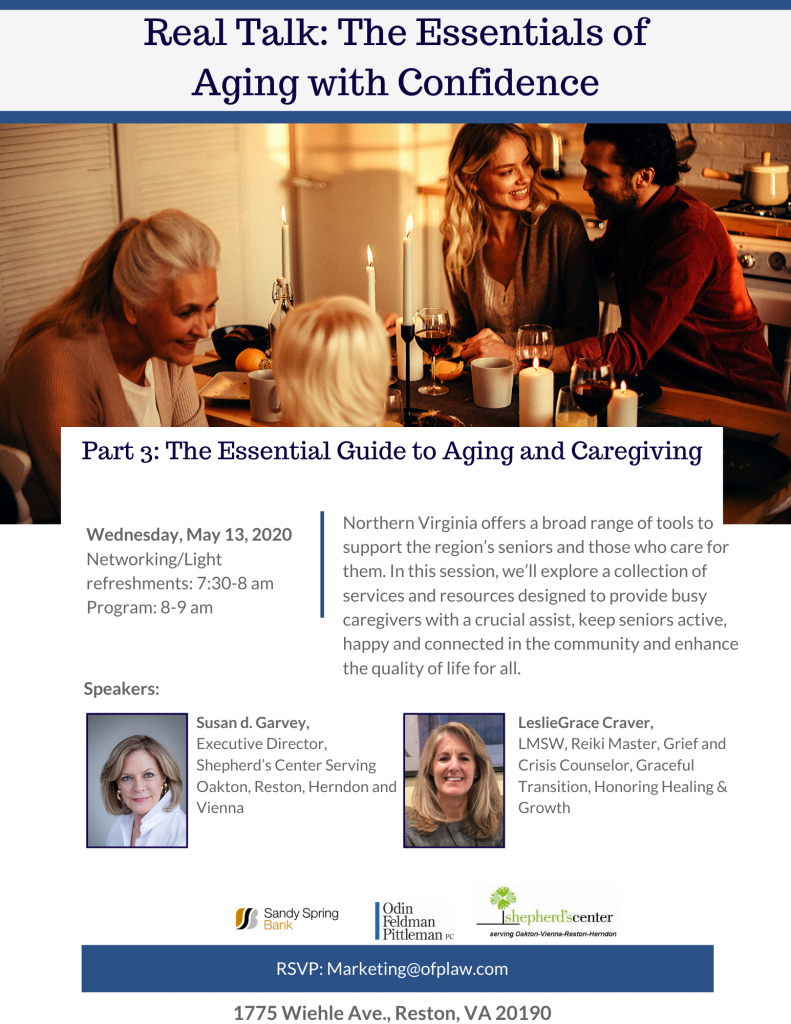Beginning with the estates of decedents dying on or after January 1, 2017, the elective share statute to be applied in Virginia will be significantly changed. Under current law, a surviving spouse has the right to claim one-third (1/3) of a decedent’s estate if the decedent left surviving children or descendants, or one-half (1/2) of the decedent’s estate if the decedent had no surviving children or descendants. These calculations were based solely on the assets (or augmented estate) of the decedent.
Under the new law, a surviving spouse will have the right to claim a percentage of one-half (1/2) of the value of the marital property included in the augmented estate. What does this mean? First, the marital property consists of the following: (a) a decedent’s net probate estate, (b) a decedent’s non-probate transfers to others, (c) a decedent’s non-probate transfers to the surviving spouse, and (d) a surviving spouse’s property and non-probate transfers to others. (Yes, you read correctly. A surviving spouse’s assets are now included in the calculation.)
Of the total value of the marital property portion of the augmented estate, the surviving spouse may be able to claim up to fifty percent (50%). The determination of whether the surviving spouse can claim the full 50% depends on the length of marriage. Thus, if a couple is married for 5 years, then the surviving spouse could claim 30% of the 50% elective share available or 15% of the augmented estate.
Furthermore, under current law, certain statutory allowances are available to a surviving spouse who claims the elective share. Those statutory allowances include the family allowance and exempt property allowance, but specifically exclude the homestead allowance. Under the new law, a surviving spouse could claim all three allowances and still make a claim for the elective share.
Finally, current law has no explicit process by which an incapacitated surviving spouse can make his or her claim. Under the new law, an incapacitated surviving spouse, by way of his or her conservator or agent under a durable power of attorney, will have the ability to claim an elective share. In addition, any elective share amount that is awarded to an incapacitated surviving spouse must be set aside in a testamentary trust and administered for the surviving spouse’s needs. At the surviving spouse’s death, provided he or she has not regained capacity and terminated the trust, any remaining assets in the testamentary trust will be distributed in accordance with any residuary clause of the predeceased spouse’s will or to the predeceased spouse’s heirs by intestacy. Effectively, in that situation, the elective share will not benefit the heirs of the surviving spouse.
So, how does this change impact you? If you are considering getting married and plan on entering into a pre-nuptial agreement, or are already married and looking to enter into a post-marital agreement, the right to the elective share can be waived. But, you should first understand the right you are waiving. Second, if you are the conservator or agent under a power of attorney of an incapacitated individual whose spouse died leaving him or her very little, then the elective share may be a viable option depending on the length of the marriage.
Third, in subsequent marriages, the families (i.e., children) of the first marriage are generally concerned with the distribution of their parent’s assets, particularly if the new spouse is the surviving spouse. Now the length of the marriage is factored into the equation and the amount available to a surviving spouse is as low as 3% for less than 1 year of marriage (or 1.5% of the augmented estate). This is a huge difference from the one-third (1/3) share available under current law and may alleviate concerns about financial exploitation.
Thus, this change appears to be in response to shifting attitudes towards marriage, that is, marriage is an economic partnership and is less about avoiding spousal impoverishment. And the changes to the elective share statute help bring Virginia up-to-date with the current dynamics of marital relationships. However, as with any new law, only time will tell what tweaks may need to be made as the law is implemented and to determine whether there are any unintended consequences as a result of the changes. #estateplanning #electiveshare #incapacityplanning #estateadministration @bgnthebgn





 A year ago Treasury
A year ago Treasury  Welcome to the New Year! As with any new year, there are usually changes to a variety of
Welcome to the New Year! As with any new year, there are usually changes to a variety of  With Gene Wilder’s death, the family released a
With Gene Wilder’s death, the family released a